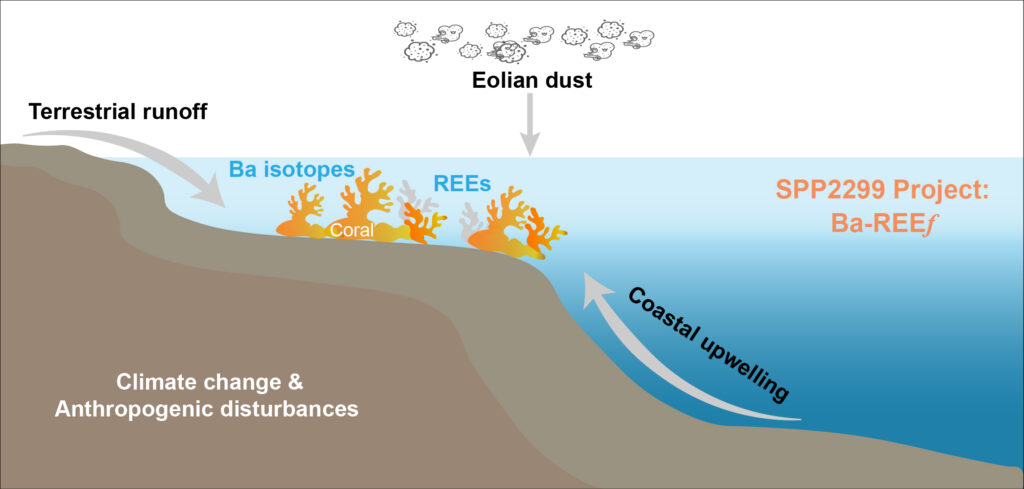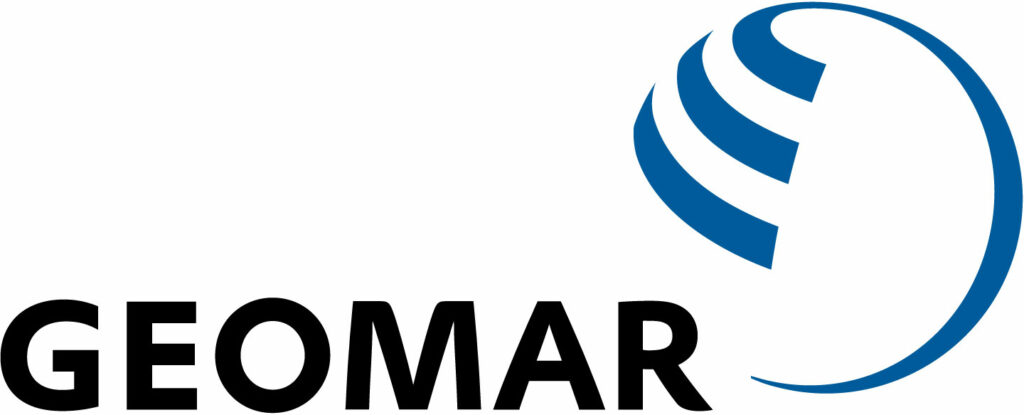
Corals are under stress from warming seawater and changes in seawater chemistry caused by human activities. Therefore, the ability to quantify past changes in river runoff, dust flux and seasonal upwelling intensity based on records of corals themselves is pivotal for coral protection, while at the same time providing valuable insights into the history of anthropogenic land use and climatic variability. However, the confidence in interpretation of the commonly used coral element/Ca proxies for terrestrial sediment fluxes and upwelling intensity, e.g., Ba/Ca ratios, is limited due to the occurrence of anomalous peaks that are not related to changes in seawater chemistry. Recently, stable Ba isotopes and rare earth elements (REE) in coral skeletons have been developed as novel tools to record past changes in riverine inputs and have been applied to improve the interpretation of the conflicting coral element/Ca records. The great value of combined stable Ba isotopes and REE lies in their specific isotope fractionation and chemical properties, respectively, which are independent from biomineralisation effects that can influence all Ca-normalized elemental ratios. By combining stable Ba isotopes and REE we will develop a more robust and widely applicable proxy for sediment fluxes and upwelling across coral reefs (Ba-REEf). Recent advances in analytical methods by our laboratory now allow the routine measurement of stable Ba isotopes and the very low REE concentrations in seawater and coral skeletons. Monthly resolved time series data of Ba-REE will be generated from coral and contemporaneous seawater at specific locations that are significantly affected by seasonal fluctuations in river runoff, dust flux and upwelling. We will perform the direct calibration of Ba isotope fractionation and REE partitioning between coral and seawater on seasonal timescales and apply the combined coral Ba-REE proxy to short records from the instrumental era. The proposed work will significantly contribute to the goals of Priority Program SPP2299 aiming at enhancing our understanding of tropical marine climate variability and its impact on coral reef ecosystems in a warming world by using novel geochemical and isotopic tools at monthly to seasonal timescales.


